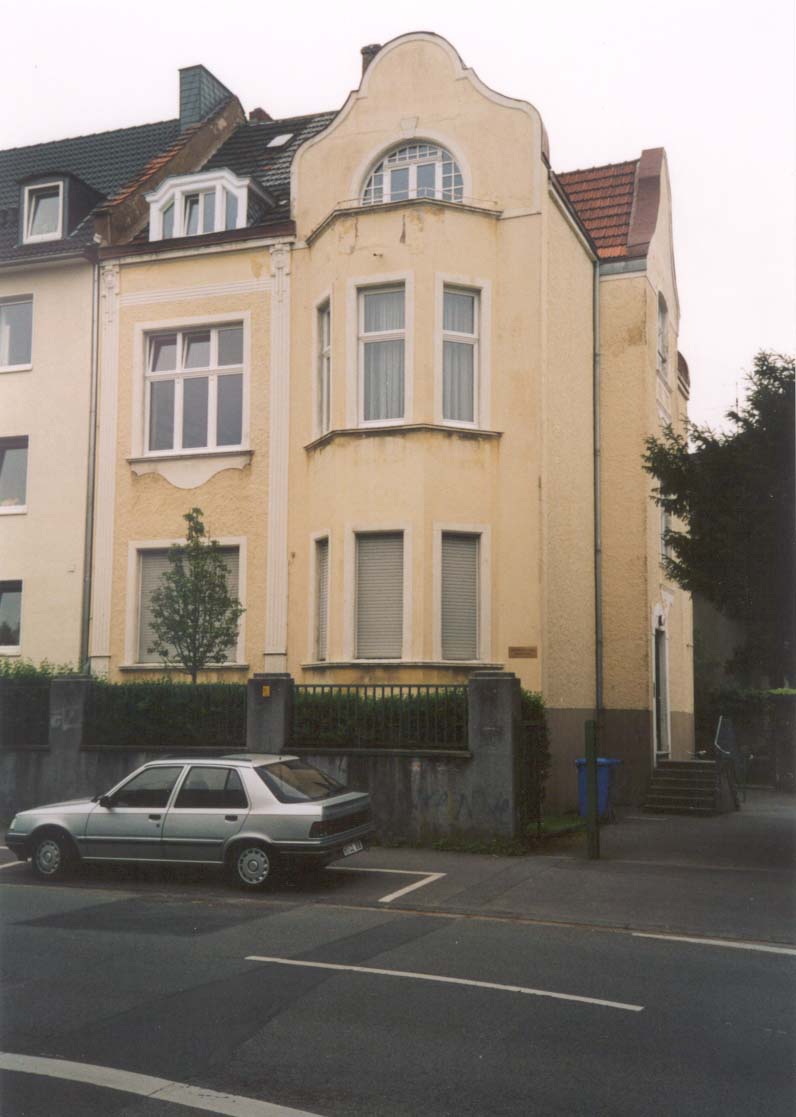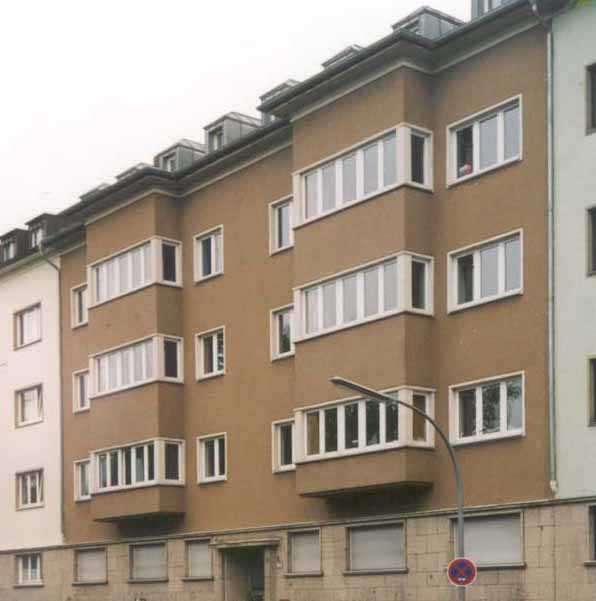The Department of Linguistics (“Institut für Sprachwissenschaft”) (1946–2003)
From 1946, Professor Carl Karstien headed the Institute for Comparative Linguistics and taught linguistics in Cologne until he retired in 1959. Professsor Leo Weisgerber stepped in for the following summer and winter semesters 1959/1960. At the time, he was the Professor for General Linguistics and Celtic Languages and Culture at the University of Bonn. In 1960, Professor Hansjakob Seiler was appointed and the Institute moved to Weyertal 138, its first independent location.
In 1965, as Professor Seiler had petitioned for, the Institute was split into two separate entities: General Linguistics and Historical-Comparative Linguistics. Professor Seiler remained in charge of General Linguistics and a new professor was appointed for Historical-Comparative Linguistics: Jürgen Untermann. The institute on Meister-Ekkehart-Straße 7 housed both subjects and is called the Institute for Linguistics.
General Linguistics
After Seiler had effected the split into General Linguistics and Historical-Comparative Linguistics, he was department head and also head of General Linguistics. In 1967, he founded the "Sprachwissenschaftliche Werkstatt" together with Untermann, which was continued as a colloquium.
Seiler headed the DFG project "UNITYP" from 1978 to 1992, which formed a central part of the department's research endeavours. The aim of the project was to conduct functional language description in accordance with a theoretical model. The model was based on domains (dimensions) that were investigated in various languages. Possible dimensions are linguistic apprehension, the broad range of verbs and actors (participation) and the connection between tense, aspect and mood (situation). The goal of the project was to devise a system for categorising the individual languages' ways of expressing these functionally defined dimensions.
From 1987 to 2008, Professor Hans-Jürgen Sasse headed the General Linguistics section.
Historical-Comparative Linguistics
After the split in 1965, Professor Jürgen Untermann was head of Historical-Comparative Linguistics.
In 1995, Professor José Luis García Ramón dtook over. From 2000 to 2005, he headed the DFG project “Lexical aspect, suppletion and morphological aspect in Indo-European” ("Verbalcharakter, Suppletivismus und morphologische Aktionsart im Indogermanischen”). The project concentrated on Indo-European as well as Celtic, Greek and Indo-Iranian verbal suppletion.
Professor Dr. Hansjakob Seiler
Professor Seiler taught general and comparative linguistics in Cologne from 1960 to 1986.
He took over from Professor Karstien in 1959. The committee recommending him described Seiler's twofold research interests as follows (in an appraisal from 1959):
"His research started from the perspective of classical philology [...] In his habilitation and in further articles also covering Modern Greek, he mainly delves into traditional structuralist issues regarding phonetics, morphology and syntax."
After extended stays in Paris (as a CNRS trainee) and the USA (as a Rockefeller Foundation fellow), he developed his own functional approach, making intensive use of fieldwork.
The long-standing DFG project "UNITYP" embodies Seiler's typological research approach.
Prof. Dr. Jürgen Untermann
Untermann habilitated in 1959 and was the Professor for Historical-Comparative Linguistics at the University of Cologne from 1965 to 1993. His main research interests were the Italic and Hispanic languages, of which only fragments remain. Untermann was acknowledged as the scientific authority on the Iberian language. As was stated in the Festschrift for his 65th birthday:
While other authorities on Italic languages were publishing their findings, you were already hard at work on what would become your masterpiece and that would forever be synonymous with your name, the Monumenta Linguarum Hispanicarum. It took you four decades to finish. You became an epigrapher, a coin expert, an expert on old writings, and in turn your work became required reading for anyone interested in the pre-Roman languages of Iberia.
Besides Untermann's edition of paleo-Hispanic inscriptions, the Monumenta Linguarum Hispanicarum (started by Emil Hübner), his systematisation of Iberian onomastics is also noteworthy.
In 1992, the University of Salamanca bestowed an honorary doctorate on Untermann. In 2010, he received the cultural award as part of the Province of Navarra Príncipe de Viana's Interational Awards.

